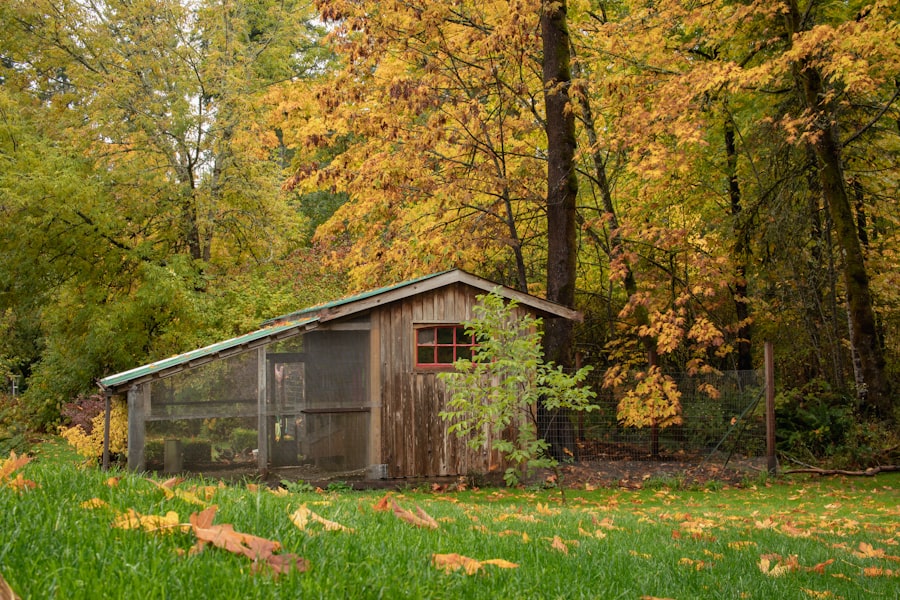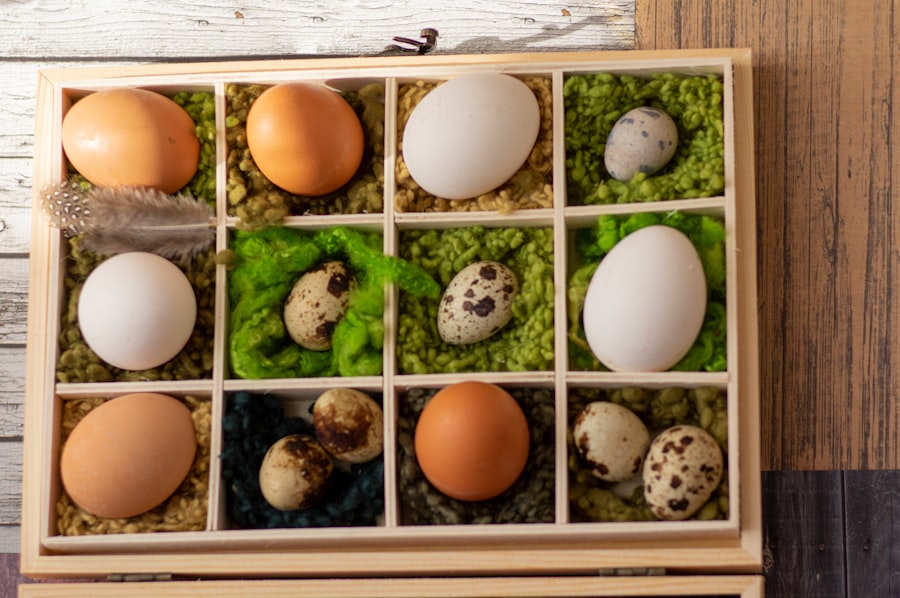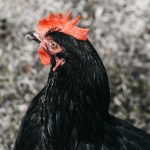Selecting the appropriate chicken breed is essential for successful poultry farming. Chicken breeds vary in their characteristics and requirements, with some excelling in egg production and others in meat yield. When choosing a breed, it is important to consider specific needs and objectives.
For those primarily focused on egg production, breeds such as Rhode Island Red, Leghorn, and Sussex are popular choices. These breeds are known for their high egg-laying capacity and relatively low maintenance requirements. Alternatively, dual-purpose breeds like Plymouth Rock or Orpington are suitable for both egg and meat production.
These breeds are generally known for their docile nature and ability to adapt to various climates. Climate and environmental factors play a crucial role in breed selection. Some breeds are better adapted to cold weather, while others perform well in warmer conditions.
Disease resistance is another important consideration, as certain breeds demonstrate higher resilience to common poultry ailments. The optimal breed choice depends on individual requirements, objectives, and the specific environmental conditions in which the chickens will be raised.
Table of Contents
- 1 Building a Coop
- 2 Feeding and Watering
- 3 Health and Hygiene
- 4 Handling and Care
- 5 Egg Production
- 6 Dealing with Predators
- 7 FAQs
- 7.1 What are the basic requirements for keeping chickens?
- 7.2 What should be considered when building a chicken coop?
- 7.3 What should be included in a chicken’s diet?
- 7.4 How can chickens be protected from predators?
- 7.5 What are some common health issues in chickens and how can they be prevented?
- 7.6 What are the benefits of keeping chickens?
Key Takeaways
- When choosing a breed, consider factors such as climate, space, and egg production
- Building a coop requires proper ventilation, predator-proofing, and adequate space for the number of chickens
- Feeding and watering chickens should include a balanced diet and access to fresh water at all times
- Health and hygiene practices include regular cleaning of the coop, monitoring for signs of illness, and providing dust baths
- Proper handling and care involves gentle interaction, regular health checks, and providing enrichment for the chickens
- Egg production can be maximized through proper nutrition, comfortable nesting boxes, and regular collection of eggs
- Dealing with predators requires securing the coop, using deterrents, and being vigilant for signs of intrusion
Building a Coop
Determining the Right Size for Your Coop
The size of your coop will depend on the number of chickens you plan to raise. As a general rule of thumb, each chicken should have at least 2-3 square feet of space inside the coop and 8-10 square feet in the outdoor run. This will ensure that your chickens have enough room to move around and engage in natural behaviors like scratching and dust bathing.
Ensuring Proper Ventilation
Proper ventilation is also crucial for a healthy coop environment. Good airflow helps regulate temperature and humidity levels, which can prevent respiratory issues and mold growth. You can achieve proper ventilation by incorporating windows, vents, and/or a ridge vent into your coop design.
Securing Your Coop from Predators
Finally, security is paramount when it comes to protecting your chickens from predators. Your coop should be constructed with sturdy materials and include features like predator-proof latches, buried wire mesh flooring, and a secure roof. Additionally, it’s important to regularly inspect and maintain your coop to ensure that it remains secure over time.
Feeding and Watering

Feeding and watering your chickens is an essential part of their care and well-being. A balanced diet is crucial for egg production, growth, and overall health. When it comes to feeding your chickens, there are several key considerations to keep in mind.
A good quality commercial feed is a great foundation for your chickens’ diet. Look for a feed that is specifically formulated for laying hens if you’re primarily interested in egg production. Additionally, you can supplement their diet with kitchen scraps, grains, and greens to provide variety and additional nutrients.
It’s important to provide access to fresh, clean water at all times. Chickens can drink a surprising amount of water, especially during hot weather or when laying eggs. Make sure that your waterers are kept clean and free of debris to prevent contamination and disease.
In addition to food and water, it’s important to provide access to grit and oyster shell. Grit helps chickens digest their food by grinding it up in their gizzards, while oyster shell provides calcium for strong eggshells. By ensuring that your chickens have access to a balanced diet and clean water, you can help them stay healthy and productive.
Health and Hygiene
Maintaining the health and hygiene of your chickens is essential for their well-being and productivity. There are several key practices that can help prevent disease and keep your flock healthy. Regularly cleaning the coop is crucial for maintaining good hygiene.
Remove soiled bedding regularly and replace it with fresh bedding to prevent the buildup of bacteria and parasites. Additionally, regularly clean and disinfect feeders, waterers, and nesting boxes to prevent the spread of disease. It’s also important to monitor your chickens for signs of illness or injury.
Common signs of illness include lethargy, decreased appetite, abnormal droppings, or respiratory symptoms. If you notice any of these signs, it’s important to isolate the affected chicken and seek veterinary care if necessary. Preventative measures such as vaccination and parasite control can also help maintain the health of your flock.
Consult with a veterinarian or poultry specialist to develop a preventative health plan that is tailored to the specific needs of your flock. By practicing good hygiene, monitoring for signs of illness, and implementing preventative measures, you can help keep your chickens healthy and productive.
Handling and Care
Proper handling and care are essential for maintaining the well-being of your chickens. When handling chickens, it’s important to be gentle and calm to avoid causing unnecessary stress or injury. When picking up a chicken, it’s best to approach them calmly and confidently.
Gently scoop them up from behind with both hands, supporting their body and wings to prevent flapping or struggling. It’s important to handle chickens with care to avoid causing injury or distress. Regularly checking your chickens for signs of injury or illness is also an important part of their care.
Inspect their feathers, skin, eyes, and feet for any abnormalities or signs of parasites. Additionally, monitor their behavior and appetite for any changes that could indicate an underlying health issue. Providing enrichment such as perches, dust bathing areas, and toys can also help keep your chickens happy and healthy.
These activities allow chickens to engage in natural behaviors and reduce stress. By handling your chickens with care, regularly monitoring their health, and providing enrichment, you can help ensure that they lead happy and healthy lives.
Egg Production

Nutrition for Egg Production
A balanced diet is essential for egg production. Ensure your hens have access to high-quality commercial feed specifically formulated for laying hens. Additionally, providing grit and oyster shell can support strong egg production.
Lighting for Consistent Egg Laying
Lighting plays a crucial role in egg production. Hens require around 14-16 hours of daylight to lay eggs consistently. If natural daylight is insufficient, supplement with artificial lighting in the coop to ensure your hens receive enough light.
Environmental Factors and Egg Collection
Maintaining a comfortable environment is vital for egg production. Ensure your coop is well-ventilated, clean, and free from drafts. Providing nesting boxes with clean bedding can encourage hens to lay eggs in a suitable location. Regularly collecting eggs can help prevent hens from becoming broody or developing undesirable egg-laying behaviors. By providing a balanced diet, proper lighting, a comfortable environment, and regularly collecting eggs, you can help maximize egg production in your flock.
Dealing with Predators
Predators pose a significant threat to the safety of your flock. It’s important to take proactive measures to protect your chickens from potential predators. One of the most effective ways to protect your flock from predators is by securing the coop and outdoor run.
Use sturdy materials such as hardware cloth or welded wire mesh to create a predator-proof barrier around the coop and run. Additionally, burying wire mesh around the perimeter of the coop can prevent predators from digging underneath. Installing motion-activated lights or sound devices can help deter nocturnal predators such as raccoons or foxes.
These devices can startle predators and discourage them from approaching the coop. Using guard animals such as dogs or geese can also help protect your flock from predators. These animals can alert you to potential threats and deter predators from approaching the coop.
Regularly inspecting the coop for signs of damage or potential entry points can help prevent predators from gaining access to your flock. By taking proactive measures to secure the coop and run, using deterrents, employing guard animals, and regularly inspecting for signs of damage, you can help protect your flock from potential predators. In conclusion, raising chickens requires careful consideration of breed selection, coop construction, feeding and watering practices, health and hygiene maintenance, handling and care techniques, egg production strategies, and predator protection measures.
By taking these factors into account and implementing best practices for each aspect of chicken care, you can ensure the health, well-being, and productivity of your flock.
If you’re new to keeping chickens, you may be wondering about the best flooring for your chicken coop. Poultry Wizard has a great article on the topic, discussing the pros and cons of different flooring options for chicken coops. Whether you’re considering using sand, straw, or wood shavings, this article provides valuable insight to help you make the best decision for your flock. Check it out here.
FAQs
What are the basic requirements for keeping chickens?
Chickens require a secure coop or housing, access to fresh water, a balanced diet of feed, and space to roam and forage.
What should be considered when building a chicken coop?
When building a chicken coop, it is important to consider the size, ventilation, predator-proofing, nesting boxes, and roosting bars for the chickens.
What should be included in a chicken’s diet?
A chicken’s diet should include a balanced commercial feed, supplemented with kitchen scraps, grains, and occasional treats like mealworms or fruits.
How can chickens be protected from predators?
Chickens can be protected from predators by using secure fencing, locking the coop at night, and using predator-proofing measures such as hardware cloth and electric fencing.
What are some common health issues in chickens and how can they be prevented?
Common health issues in chickens include parasites, respiratory infections, and egg-laying problems. These can be prevented by providing a clean environment, regular health checks, and proper nutrition.
What are the benefits of keeping chickens?
Keeping chickens can provide a sustainable source of fresh eggs, natural pest control in the garden, and the enjoyment of observing and caring for animals.
Meet Walter, the feathered-friend fanatic of Florida! Nestled in the sunshine state, Walter struts through life with his feathered companions, clucking his way to happiness. With a coop that’s fancier than a five-star hotel, he’s the Don Juan of the chicken world. When he’s not teaching his hens to do the cha-cha, you’ll find him in a heated debate with his prized rooster, Sir Clucks-a-Lot. Walter’s poultry passion is no yolk; he’s the sunny-side-up guy you never knew you needed in your flock of friends!







